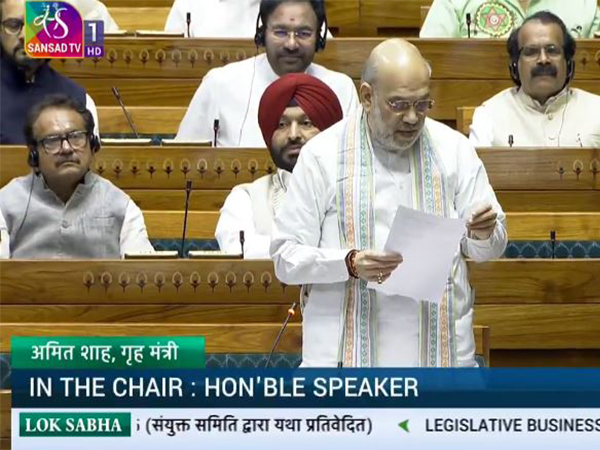Justice Rituraj Awasthi assumes charges as Law Commission of India's Chairperson
Nov 09, 2022

New Delhi [India], November 10 : Justice Ritu Raj Awasthi, Retired Chief Justice, Karnataka High Court on Wednesday assumed charge as Chairperson, Law Commission of India along with Justice K T Sankaran, Retired Judge, Kerala High Court as Member and M Karunanithi, Advocate, Madurai, Tamil Nadu as part-time member.
Recently, the Central Government has appointed Justice Rituraj Awasthi, Retired High Court Chief Justice of Karnataka as Chairperson, of the Law Commission of India alongwith five members of the commission.
The Law and Justice Minister Kiren Rijiju made a tweet in these regards stating, " The Central Government is pleased to appoint Justice Rituraj Awasthi, Retired HC Chief Justice as Chairperson, Law Commission of India and Justice KT Sankaran, Prof. Anand Paliwal, Prof. DP Verma, Prof.(Dr) Raka Arya and Shri M. Karunanithi as Members of the Commission.
Justice Ritu Raj Awasthi was Chief Justice of the Karnataka High Court from 11 October 2021 to 2 July 2022. He was a Judge of Allahabad High Court from 13 April 2009 to 10 October 2021. Justice Rituraj Awasthi graduated in Law from Lucknow University in 1986 and enrolled as an Advocate on Feb 01, 1987. He earlier practised in Civil, Service, and Educational matters at Lucknow Bench, Allahabad high court. He also worked as Asst. Solicitor General of India at Lucknow before elevation.
By appointing a new Chairperson and other five panel members for the Law Commission of India, the Central Government has reinstated it. The last chairman of the Commission retired in August 2018, and since then, it has not been reconstituted.
The Commission's function is to research and advise the Government of India on legal reform, composed of legal experts, and headed by a retired judge. The commission is established for a fixed tenure and works as an advisory body to the Ministry of Law and Justice.
The Law Commission's role has been both advisory and critical of the government's policies. The Supreme Court of India and academia have recognized the commission as pioneering and perspective. In a number of decisions, the Supreme Court has referred to the work done by the commission and followed its recommendations.

















